Ambulance staff strikes: Eluned Morgan hopeful of 999 response
- Published
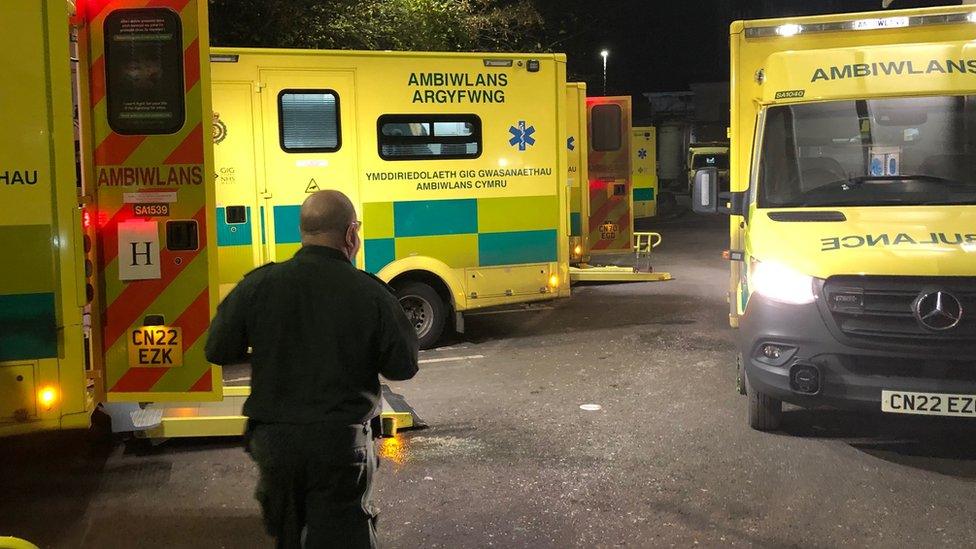
The Welsh Ambulance Service is experiencing high demand on its services due to the cold weather
Wales' health minister has said she was "hopeful" ambulances would get to the most serious calls when paramedics plan to strike on Wednesday.
Eluned Morgan said red category life-threatening calls would be prioritised but people "need to consider" pressure on other calls "will be even greater".
The Welsh Ambulance Service said it had been experiencing high call demand, external as a result of the icy weather.
It has called on people to only dial 999 in a life-threatening emergency.
The UK government has made arrangements to deploy 1,200 members of the military and 1,000 civil servants in England during Wednesday's strike.
Ms Morgan said the army had a role to play but soldiers would not be driving ambulances in Wales.
"We will not be using the army to transport people, but we are going to be using the army for logistics," she told BBC Radio Wales' Sunday Supplement.
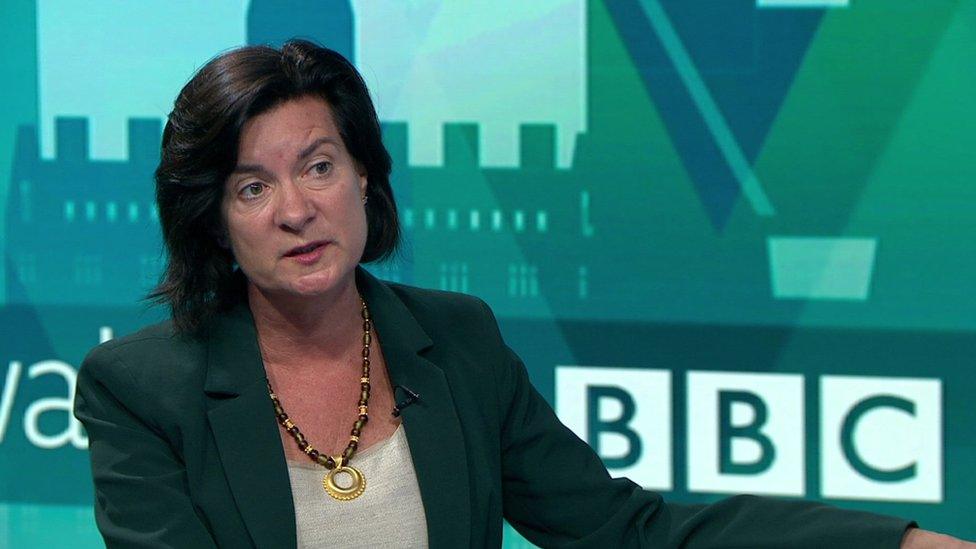
Eluned Morgan said NHS Wales would be "under immense" pressure this week with separate strikes by ambulance workers and nurses
"That is making sure we use the capacity we do have to its maximum effect.
"We have discussed that with trade unions and they seem to be comfortable with that particular use of the services."
Ms Morgan said NHS Wales would be "under immense" pressure this week with separate action by ambulance workers and a nurses' strike on 20 December.
'Greater pressure'
Asked if she was confident people in with red category calls would get an ambulance during the strike, Ms Morgan said: "We're hopeful they will if they are in that category on Wednesday.
"But that means the pressure on those not in that category will be even greater, that's something people need to consider.
"And, obviously, it's important that people seek clinical advice."
She said people calling the NHS Wales 111 advice line and the 999 service would be directed to the most appropriate help.
"And there will be occasions when you'll be encouraged to try and get yourself to hospital if it is genuinely difficult and not that life-threatening situation," she said.
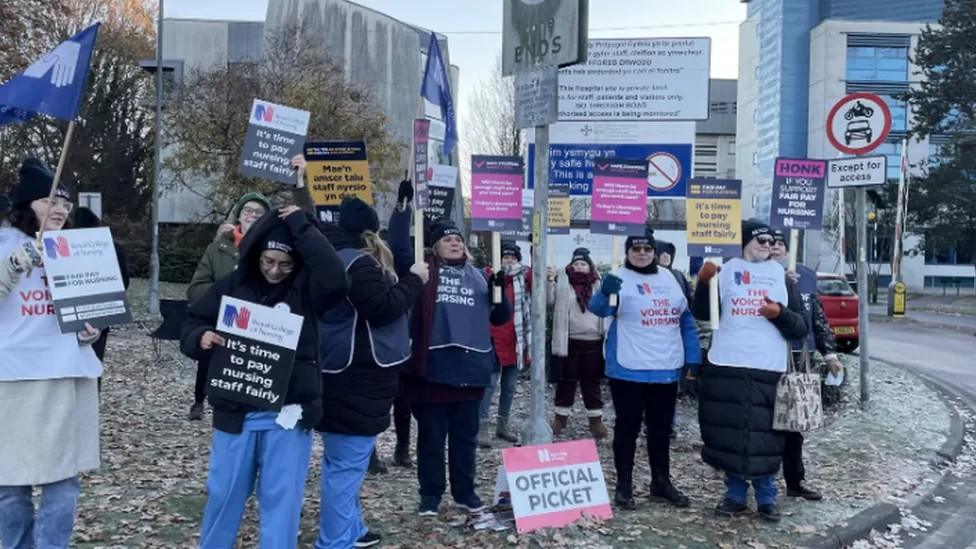
Members of the RCN on the picket line outside the University Hospital Wales in Cardiff
The Welsh Ambulance Service recorded its worst-ever performance in October, latest figures have shown, responding to less than half of red category calls within eight minutes.
Some 10,000 ambulance staff are striking across most of Wales and England on 21 December in a dispute over pay.
Meanwhile, Helen Whyley, the Royal College of Nursing (RCN) director in Wales, said there will "absolutely" be more nursing strikes in the new year.
Welsh Conservative health spokesman Russell George called it "totally disingenuous" for the first minister to say he could do nothing.
"I am also surprised that the health minister is so candid, only being hopeful that ambulances will actually reach the most serious situations," Mr George said.
"However, that seems to be the case even when there isn't a strike on, with Wales recording its slowest response times on record in October.
"Labour need to get a grip on the NHS."
- Published13 December 2022
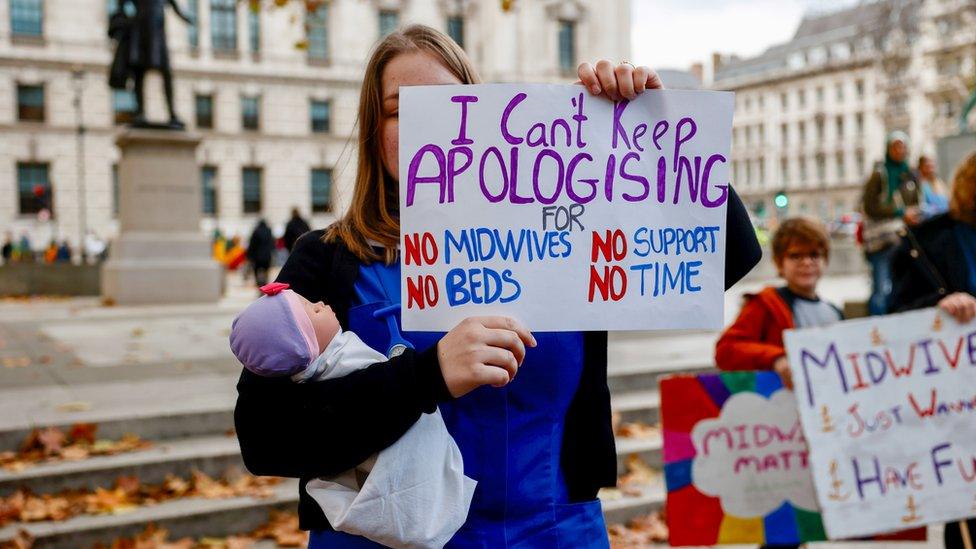
- Published11 December 2022
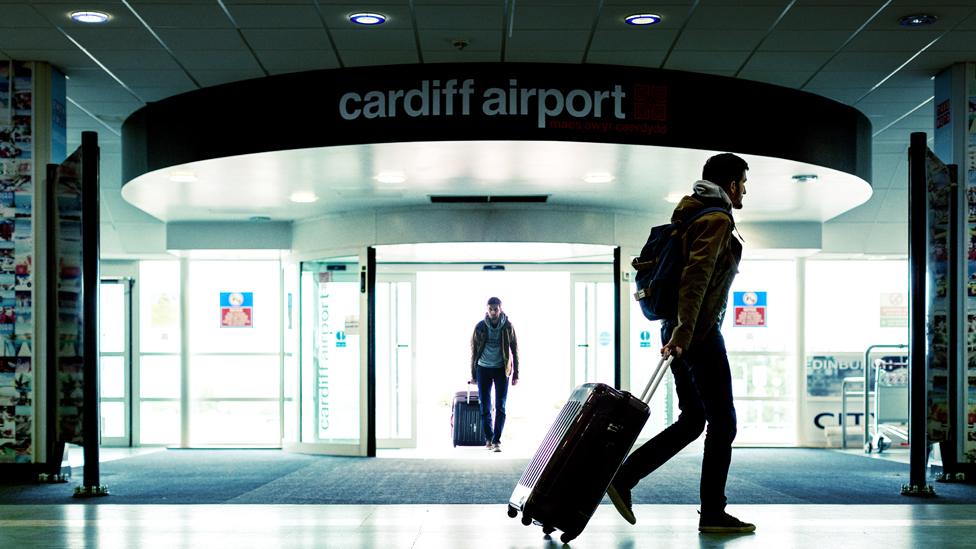
- Published9 May 2024
